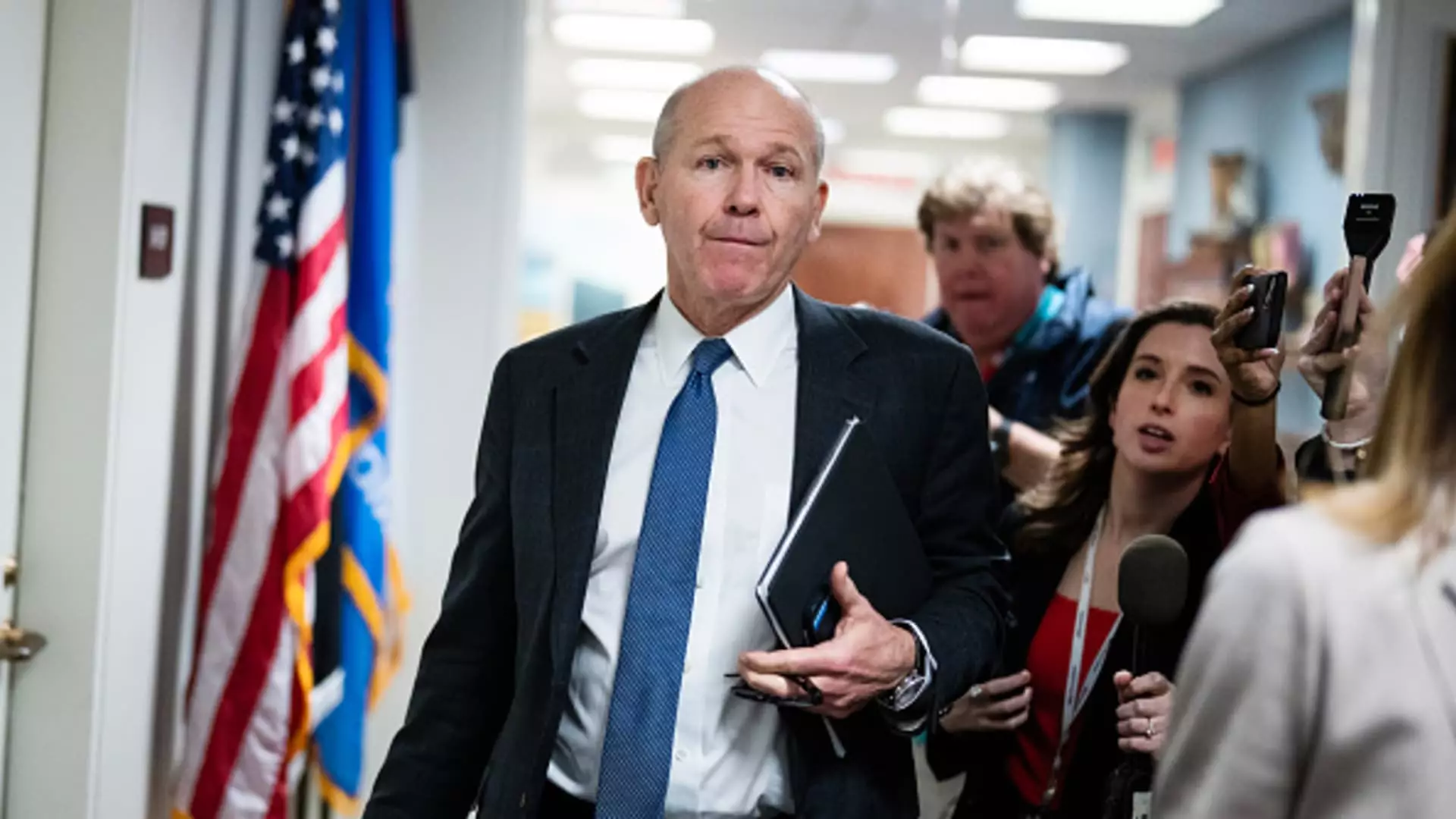Boeing CEO Dave Calhoun faces a Senate panel on Tuesday to address the ongoing issues at the company. Despite acknowledging that Boeing’s culture is “far from perfect,” Calhoun is under scrutiny as fresh whistleblower claims have surfaced just hours before the hearing. These claims allege that the company mishandled hundreds of defective parts, raising serious concerns about safety and quality standards at Boeing.
Whistleblower Claims and Retaliation
The whistleblower claims, brought forth by Sam Mohawk, a quality assurance investigator at Boeing, paint a grim picture of the company’s practices. Mohawk alleges that Boeing lost track of damaged or substandard parts, which may have been installed on airplanes. Furthermore, Mohawk claims that supervisors instructed him to conceal evidence from the Federal Aviation Administration (FAA), putting the safety of passengers at risk. This culture of hiding defects and potential safety hazards is deeply concerning and highlights a systemic issue within Boeing.
Government Oversight and Accountability
The Senate Permanent Subcommittee on Investigations is tasked with holding Boeing accountable for its actions. With mounting pressure from regulators and the Justice Department, Boeing’s leadership is under intense scrutiny. The potential for U.S. prosecution looms large, as the Justice Department looks into violations tied to previous crashes involving Boeing aircraft. Victims’ families seeking justice are adding to the pressure on Boeing to address its safety practices and corporate culture.
The fallout from these revelations is already affecting Boeing’s operations. The FAA has halted Boeing’s production increase of its 737 Max aircraft, one of its best-selling models. This restriction, coupled with ongoing safety concerns, has led to a decrease in Boeing’s aircraft output. Major customers like Southwest Airlines and United Airlines are adjusting their plans in response to Boeing’s production issues, leading to financial strain and decreased cash flow for the company.
In addition to internal issues, Boeing is facing challenges in its supply chain. Suppliers like Spirit AeroSystems have raised concerns about fraudulent documentation for materials used in airplane manufacturing. Despite passing tests for quality, the falsified documents raise questions about oversight and transparency in Boeing’s supply chain. These issues could have long-term implications for Boeing’s ability to maintain quality standards and meet production targets.
As Boeing grapples with internal strife, regulatory scrutiny, and supply chain challenges, the company’s reputation and financial stability are at stake. The ongoing issues at Boeing highlight the critical need for transparency, accountability, and a cultural shift towards prioritizing safety and quality above all else. Only time will tell if Boeing can navigate these turbulent waters and emerge stronger on the other side.

Leave a Reply